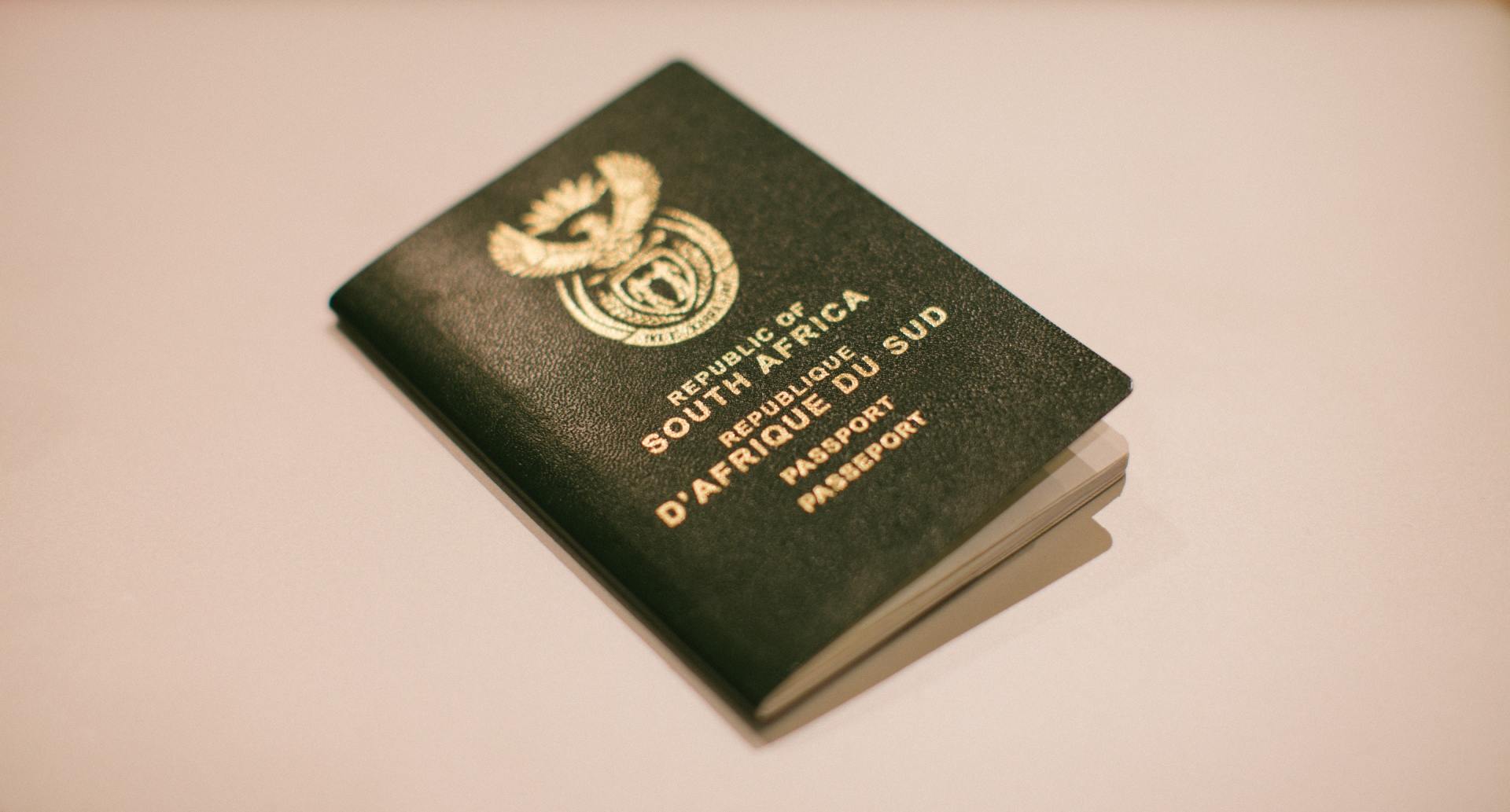Travellers from Visa Waiver Counties now need E-Passports!
Sandra Boogaard • April 6, 2016
Visa Waiver Program Improvement and Terrorist Travel Prevention Act.
Immigration News

Traveling internationally in 2025 presents new challenges for immigrants, visa holders, and even U.S. citizens due to heightened border security measures. Customs and Border Protection (CBP) has increased scrutiny at ports of entry, which may include detailed questioning, searches of electronic devices, and reviews of social media activity. These measures can affect travelers regardless of their immigration status, and inconsistencies between travel purposes and carried items can lead to denial of entry. To prepare for international travel, ensure all documentation is current and accurately reflects your travel intentions. Be ready to explain your trip's purpose and consider minimizing sensitive content on electronic devices. While you are not obligated to unlock your devices, refusal may result in confiscation or denial of entry. Those with prior immigration issues or unusual travel patterns should be especially cautious, as they may face additional inspections or detention. Be careful of what you post on social media and ensure that you do not break the law! Given the evolving nature of immigration policies, staying informed and prepared is crucial. For personalized advice, consider reaching out to a qualified immigration attorney who can provide guidance based on your specific circumstances. It's advisable to consult with an immigration attorney before traveling and to inform someone of your travel plans in case legal assistance becomes necessary. Sandra Boogaard Law Office- Phone: (330) 329-7134 Email: sandra@sandraboogaardlaw.com

Undocumented Immigrants MUST REGISTER THEIR PRESENCE WITH USCIS OR FACE ! On January 20, 2025, President Trump issued the Protecting the American People Against Invasion executive order, reinforcing the requirement for noncitizens to register with the government under Section 262 of the Immigration and Nationality Act (INA) (8 U.S.C. 1302) . This mandate applies to most noncitizens over the age of 14 who were not previously registered when applying for a visa and remain in the U.S. for more than 30 days. Parents and guardians are responsible for ensuring registration of children under 14, and all registered individuals must carry proof of registration once issued. Failure to comply may result in civil and criminal penalties , including fines and possible misdemeanor prosecution. To facilitate compliance, U.S. Citizenship and Immigration Services (USCIS) is introducing a new form and online registration process , set to launch on February 25, 2025 . Most noncitizens, such as lawful permanent residents, visa holders, and individuals with work authorization, have already met this requirement. However, those present in the U.S. without inspection, certain Canadian visitors, and some applicants for benefits like Deferred Action for Childhood Arrivals (DACA) or Temporary Protected Status (TPS) may need to register. While registration does not grant immigration status or employment authorization, it is a legal obligation. Noncompliance could lead to enforcement actions , making it crucial for affected individuals to prepare by creating a USCIS online account in advance. For legal guidance and assistance in navigating this requirement, contact an experienced immigration attorney. Sandra Boogaard Office Phone- (330) 329-7134 Email- sandra@sandraboogaardlaw.com

The U.S. Citizenship Act of 2021 establishes a new system to responsibly manage and secure our border, keep our families and communities safe, and better manage migration across the Hemisphere. President Biden is sending a bill to Congress on day one to restore humanity and American values to our immigration system. The bill provides hardworking people who enrich our communities every day and who have lived here for years, in some cases for decades, an opportunity to earn citizenship. The legislation modernizes our immigration system, and prioritizes keeping families together, growing our economy, responsibly managing the border with smart investments, addressing the root causes of migration from Central America, and ensuring that the United States remains a refuge for those fleeing persecution. The bill will stimulate our economy while ensuring that every worker is protected. The bill creates an earned path to citizenship for our immigrant neighbors, colleagues, parishioners, community leaders, friends, and loved ones—including Dreamers and the essential workers who have risked their lives to serve and protect American communities. FEATURES OF THE CITIZENSHIP ACT: PROVIDE PATHWAYS TO CITIZENSHIP & STRENGTHEN LABOR PROTECTIONS • Create an earned roadmap to citizenship for undocumented individuals. The bill allows undocumented individuals to apply for temporary legal status, with the ability to apply for green cards after five years if they pass criminal and national security background checks and pay their taxes. Dreamers, TPS holders, and immigrant farmworkers who meet specific requirements are eligible for green cards immediately under the legislation. After three years, all green card holders who pass additional background checks and demonstrate knowledge of English and U.S. civics can apply to become citizens. Applicants must be physically present in the United States on or before January 1, 2021. The Secretary of the Department of Homeland Security (DHS) may waive the presence requirement for those deported on or after January 20, 2017 who were physically present for at least three years prior to removal for family unity and other humanitarian purposes. Lastly, the bill further recognizes America as a nation of immigrants by changing the word “alien” to “noncitizen” in our immigration laws. • Keep families together. The bill reforms the family-based immigration system by clearing backlogs, recapturing unused visas, eliminating lengthy wait times, and increasing per-country visa caps. It also eliminates the so-called “3 and 10-year bars,” and other provisions that keep families apart. The bill further supports families by more explicitly including permanent partnerships and eliminating discrimination facing LGBTQ+ families. It also provides protections for orphans, widows, children, and Filipino veterans who fought alongside the United States in World War II. Lastly, the bill allows immigrants with approved family-sponsorship petitions to join family in the United States on a temporary basis while they wait for green cards to become available. • Embrace diversity. The bill includes the NO BAN Act that prohibits discrimination based on religion and limits presidential authority to issue future bans. The bill also increases Diversity Visas to 80,000 from 55,000. • Promote immigrant and refugee integration and citizenship. The bill provides new funding to state and local governments, private organizations, educational institutions, community-based organizations, and not-for-profit organizations to expand programs to promote integration and inclusion, increase English-language instruction, and provide assistance to individuals seeking to become citizens. • Grow our economy. This bill clears employment-based visa backlogs, recaptures unused visas, reduces lengthy wait times, and eliminates per-country visa caps. The bill makes it easier for graduates of U.S. universities with advanced STEM degrees to stay in the United States; improves access to green cards for workers in lower-wage sectors; and eliminates other unnecessary hurdles for employment-based green cards. The bill provides dependents of H-1B visa holders work authorization, and children are prevented from “aging out” of the system. The bill also creates a pilot program to stimulate regional economic development, gives DHS the authority to adjust green cards based on macroeconomic conditions, and incentivizes higher wages for non-immigrant, high-skilled visas to prevent unfair competition with American workers. • Protect workers from exploitation and improve the employment verification process. The bill requires that DHS and the Department of Labor establish a commission involving labor, employer, and civil rights organizations to make recommendations for improving the employment verification process. Workers who suffer serious labor violations and cooperate with worker protection agencies will be granted greater access to U visa relief. The bill protects workers who are victims of workplace retaliation from deportation in order to allow labor agencies to interview these workers. It also protects migrant and seasonal workers, and increases penalties for employers who violate labor laws. PRIORITIZE SMART BORDER CONTROLS • Supplement existing border resources with technology and infrastructure. The legislation builds on record budget allocations for immigration enforcement by authorizing additional funding for the Secretary of DHS to develop and implement a plan to deploy technology to expedite screening and enhance the ability to identify narcotics and other contraband at every land, air, and sea port of entry. This includes high-throughput scanning technologies to ensure that all commercial and passenger vehicles and freight rail traffic entering the United States at land ports of entry and rail-border crossings along the border undergo pre-primary scanning. It also authorizes and provides funding for plans to improve infrastructure at ports of entry to enhance the ability to process asylum seekers and detect, interdict, disrupt and prevent narcotics from entering the United States. It authorizes the DHS Secretary to develop and implement a strategy to manage and secure the southern border between ports of entry that focuses on flexible solutions and technologies that expand the ability to detect illicit activity, evaluate the effectiveness of border security operations, and be easily relocated and broken out by Border Patrol Sector. To protect privacy, the DHS Inspector General is authorized to conduct oversight to ensure that employed technology effectively serves legitimate agency purposes. • Manage the border and protect border communities. The bill provides funding for training and continuing education to promote agent and officer safety and professionalism. It also creates a Border Community Stakeholder Advisory Committee, provides more special agents at the DHS Office of Professional Responsibility to investigate criminal and administrative misconduct, and requires the issuance of department-wide policies governing the use of force. The bill directs the Government Accountability Office (GAO) to study the impact of DHS’s authority to waive environmental and state and federal laws to expedite the construction of barriers and roads near U.S. borders and provides for additional rescue beacons to prevent needless deaths along the border. The bill authorizes and provides funding for DHS, in coordination with the Department of Health and Human Services (HHS) and nongovernmental experts, to develop guidelines and protocols for standards of care for individuals, families, and children in CBP custody. • Crack down on criminal organizations. The bill enhances the ability to prosecute individuals involved in smuggling and trafficking networks who are responsible for the exploitation of migrants. It also expands investigations, intelligence collection and analysis pursuant to the Foreign Narcotics Kingpin Designation Act to increase sanctions against foreign narcotics traffickers, their organizations and networks. The bill also requires the Federal Bureau of Investigation (FBI), Drug Enforcement Agency (DEA) and DHS, in coordination with the Secretary of State, to improve and expand transnational anti-gang task forces in Central America. ADDRESS ROOT CAUSES OF MIGRATION • Start from the source. The bill codifies and funds the President’s $4 billion four-year inter-agency plan to address the underlying causes of migration in the region, including by increasing assistance to El Salvador, Guatemala, and Honduras, conditioned on their ability to reduce the endemic corruption, violence, and poverty that causes people to flee their home countries. It also creates safe and legal channels for people to seek protection, including by establishing Designated Processing Centers throughout Central America to register and process displaced persons for refugee resettlement and other lawful migration avenues—either to the United States or other partner countries. The bill also re-institutes the Central American Minors program to reunite children with U.S. relatives and creates a Central American Family Reunification Parole Program to more quickly unite families with approved family sponsorship petitions. • Improve the immigration courts and protect vulnerable individuals. The bill expands family case management programs, reduces immigration court backlogs, expands training for immigration judges, and improves technology for immigration courts. The bill also restores fairness and balance to our immigration system by providing judges and adjudicators with discretion to review cases and grant relief to deserving individuals. Funding is authorized for legal orientation programs and counsel for children, vulnerable individuals, and others when necessary to ensure the fair and efficient resolution of their claims. The bill also provides funding for school districts educating unaccompanied children, while clarifying sponsor responsibilities for such children. • Support asylum seekers and other vulnerable populations. The bill eliminates the one-year deadline for filing asylum claims and provides funding to reduce asylum application backlogs. It also increases protections for U visa, T visa, and VAWA applicants, including by raising the cap on U visas from 10,000 to 30,000. The bill also expands protections for foreign nationals assisting U.S. troops. NOTE THAT THIS BILL IS NOT YET LAW! IT WILL LIKELY TAKE A WHILE BEFORE ANY PART OF IT BECOMES LAW! YOU CANNOT APPLY FOR ANY OF THESE BENEFITS YET. What you can do is make sure that you are staying out of trouble, paying your taxes, gather documents such as birth certificates, marriage certificates etc. If you have questions about any part of this PROPOSED BILL, please speak with a reputable immigration attorney. Sandra Boogaard Law Office; Phone- (330) 329-7134 or (646) 588-2747 Email: sandra@sandraboogaardlaw.com

If you are likely to become a “public charge” or become a financial burden to the U.S. government, your green card application could be denied!. Before you apply for immigration benefits, contact us to determine if you are jeopardizing your case! The new public charge rule applies to the specific adjustment of status (also known as green cards) candidates, as well as certain nonimmigrants looking to change their status or extending their stay.

ICE is about to start tracking license plates across the US! Follow the law! The Department of Homeland Security, DHS has reported that U.S. Immigration and Customs Enforcement (ICE) has procured query-based access to a vendor-owned commercial License Plate Reader (LPR) data service that stores recorded vehicle license plate data from cameras equipped with license plate reader technology. The Immigration and Customs Enforcement (ICE) agency has officially gained agency-wide access to a nationwide license plate recognition database, according to the DHS. The system gives the agency access to billions of license plate records and new powers of real-time location tracking. The commercial database receives data from a variety of governmental and private sources, including: • Toll road cameras; • Parking lot cameras; • Vehicle repossession companies; and • Law enforcement agencies.3 ICE agents would be able to query that database in two ways. A historical search would turn up every place a given license plate has been spotted in the last five years, a detailed record of the target’s movements. That data could be used to find a given subject’s residence or even identify associates if a given car is regularly spotted in a specific parking lot. ICE agents can also receive instantaneous email alerts whenever a new record of a particular plate is found — a system known internally as a “hot list.” Immigrants should ensure that they follow the law at all times to avoid being brought into deportation proceedings because the government now has access to even more technology that can invade your privacy. Call an attorney if you believe your due process rights are being infringed upon. By: Sandra Boogaard Esq. Phone: (330) 329-7134 Email: sandra@sandraboogaardlaw.comA

@DACAImmigration @Sboogaardlaw Have you applied for Deferred Action for Childhood Arrivals (DACA) yet? Deferred action is a discretionary determination to defer removal action of an individual as an act of prosecutorial discretion. Under this process, USCIS will consider requests on a case-by-case basis. While this process does not provide lawful status or a pathway to permanent residence or citizenship, individuals whose cases are deferred will not be removed from the United States for a two year period, subject to renewal, and may also receive employment authorization. To be considered for this process, you must show that: · You came to the United States before reaching your 16th birthday · You have continuously resided in the United States since June 15, 2007, up to the present time · You were under the age of 31 as of June 15, 2012 · You entered without inspection before June 15, 2012, or your lawful immigration status expired as of June 15, 2012 · You are currently in school, have graduated or obtained your certificate of completion from high school, have obtained your general educational development certification, or you are an honorably discharged veteran of the Coast Guard or Armed Forces of the United States · You have not been convicted of a felony, significant misdemeanor, or three or more misdemeanors, and do not otherwise pose a threat · You were present in the United States on June 15, 2012, and at the time of making your request for consideration of deferred action with USCIS If you meet the guidelines listed above and are ready to submit your requests to the USCIS, please collect documents as evidence you meet the guidelines including school records, proof of U.S. residency, expired I-94 card and birth certificate. You can then complete and submit I-821D , I-765 and I-765 Worksheet and pay a total fee of $465 to the USCIS. If you require assistance, Sandra Boogaard Law Office can help you to complete and file these documents right the first time! Our fees are extremely moderate.

There are two classifications of Immigrant Workers who are not required to have a job offer and may self-petition for a green card to come to the United States to live and work permanently. These persons do not need an employer or sponsor to file nor will they need to go through the labor certification process.These categories include: *Individuals of extraordinary ability in the sciences, arts, education, business or athletics, (E11) *Individuals who were granted a National Interest Waiver (NIW), (E2) INDIVIDUALS OF EXTRAORDINARY ABILTY: These are people at the top of their field and are considered top priority and given first preference. Foreign nationals of “extraordinary ability” are considered “priority workers” of the 1st preference employment category, and do not need an employer/sponsor or labor certification. To qualify, the foreign national must show they are part of the “small percentage” of individuals who have “risen to the very top of the field of endeavor”, and will continue to work in the U.S. in their chosen area of expertise. The extraordinary ability standard is very difficult to meet by definition, and the foreign national must have either won a major, internationally respected award (the prime example being the Nobel Prize) or present extensive evidence of certain types showing extraordinary achievement in their field. NATIONAL INTEREST WAIVER: Individuals who may have restrictions waived due to a National Interest Waiver are considered 2nd preference workers, one category below extraordinary ability. Even if the foreign national is does not meet the restrictive “extraordinary ability” standard, they may still avoid labor certification and self-petition if they are in the 2nd preference employment category and show eligibility for a national interest waiver. 2nd preference workers must either have advanced degrees (Ph.D., Master’s, or in some cases a Bachelor’s with experience), or be of “exceptional ability”. Generally speaking, “exceptional ability” is defined as expertise significantly above the average that will be beneficial to the U.S. in particular, specified ways. To show eligibility for a national interest waiver, the 2nd preference worker must meet three additional criteria: their employment must be in an “area of substantial intrinsic merit”, their work must be “national in scope”, and this employment will present a “national benefit so great as to outweigh the national interest inherent in the labor certification process”. In other words, the foreign national must show that his or her work is so beneficial to the United States that it is worth risking replacing qualified and willing U.S. citizens workers in this field by skipping the labor certification process, and extensive documentation must be submitted. Advisory: You may NOT self petition based on employment, if you are not in one of these two categories. For other employment based green cards, there is the option of Green Card Through a Job Offer or “Green Card Through Investment. Sandra Boogaard Law Office can help you file a successful Self Petition Green Card Application. Contact us if you need further information or assistance. Phone (646) 688-2747. www.sandraboogaardlaw.com #Sboogaardlaw #Immigration #Self Petition
























